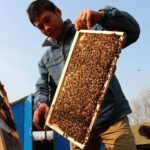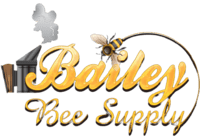View our products
Randall's Archive
May What's The Deal With Feeding Honey To Babies
Apr Bears In The Central Piedmont
Mar Making Splits To Deter Swarming
Feb Myth of Defending The Queen
Dec Sharing Miticides The Right Way
Nov Emergency Feeding In Winter
Oct What Makes A Syrup Feeder A Good One?
Sep Hurricanes Aren't Just A Hockey Team
Varroa Mite Management
Blood-Sucking Baby-Killers Are After Your Bee
Deciphering EPA’s Advisory on Varroa Mite Treatments
Management Begins With Monitoring
Sharing Miticides The Right Way
The Oxalic Acid Label Law Has Changed
What's The Deal With Oxalic Acid?
What's The Deal With Oxalic Acid? Part 2
Maladies and Pests
(Except Varroa Mites)
A New Old Tool to Fight Wax Moths
Wisdom Wins Out Regarding AFB Treatments
Colony Management
Making Splits To Deter Swarming
Maybe We Shouldn't Keep Honey Bees After All
Packages Vs. Nucs: Want To Fight About It?
Should We Tear Hives Apart In January
The Flip Side of Making Splits
Where's Waldo? A Dozen Tips For Finding The Queen
Bee Biology and Behavior
Honey Bee Colonies As A Superorganism
I Need To Buy A Queen... Or Do I?
Robbing Swarming or Orientation Flights
Equipment
Gadgets, Gizmos and Got-To-Haves
Let's Make A Frame Assembly Jig
Make Your Own Solar Wax Melter
Packages vs Nucs: Want To Fight About It?
Refractometer Use and Calibration
Standard Equipment: How Standard Is It?
What Makes A Syrup Feeder A Good One?
Products Of The Hive
CBD Oil In Honey? Not So Fast!
Thanksgiving Delicacies From The Hive
What's The Deal With Feeding Honey To Babies?
Foraging Plants
Little Bee, Where Have You Been?
General Education
Are You Ready For A Challenge?
Hurricanes Aren't Just A Hockey Team
Investing in North Carolina's Beekeeping Future
It's Not Just Bee Stings Part 1
It's Not Just Bee Stings Part 2
It's Quiet Out There... Too Quiet
Local Beekeeper Associations: A Whole Lot Of Bang For The Buck
Mentoring AS A Defensive Strategy
Save The Bees, Starting With Your Own
Spotlight on Bee Downtown's Justin Maness
Teaching Kids About Honey Bees
Tips for Dealing With Honeybees at Hummingbird Feeders
Educational Links

Bee Friendly Plant List for Triangle Area of NC
An Oxalic Acid Tale by Tony Gaddis
Beekeeping Notes
Extension articles by the NC State Apiculture Program.
Apiary Inspectors
By clicking on a colored section of the linked map, you can obtain a large map of an Apiary Inspector’s assigned work area. The display will also include the Inspector’s name, city/town of residence, telephone number and e-mail address.
Apiary Program of the North Carolina Department of Agriculture and Consumer Services
The mission of the North Carolina Department of Agriculture and Consumer Services Apiary Program is to promote and protect the state’s beekeeping industry.
North Carolina Beekeepers Association (NCSBA)
The NCSBA is a volunteer led organization comprised of more than four thousand active members, almost all of which are hobbyist beekeepers that are also members of a network of local beekeeping associations.
NC State University Apiculture Program
The research focus of the NCSU Apiculture program is to further our understanding of honey bee biology and to better our ability of bee management.
Support Thank You Letter 1st Qtr 2025
National Honey Board (NHB)
The National Honey Board (NHB) is an industry-funded agriculture promotion group that works to educate consumers about the benefits and uses for honey and honey products through research, marketing and promotional programs.
Bee Informed Partnership
The Bee Informed Partnership is a collaboration of efforts across the country from some of the leading research labs and universities in agriculture and science to better understand honey bee declines in the United States.
Honey Bee Health Coalition
The Honey Bee Health Coalition brings together beekeepers, growers, researchers, government agencies, agribusinesses, conservation groups, manufacturers, and consumer brands to improve honey bee health by addressing multiple factors influencing bee health, including hive pests and disease, forage and nutrition, and exposure to crop pesticides.

